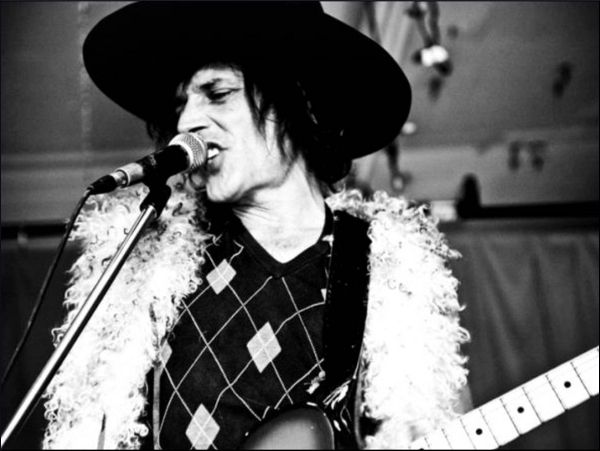Among Jean Leloup’s most popular songs is “I Lost My Baby,” from his hit 1996 album Le Dome. Leloup is an enduring presence in the Quebec music community, coming onto the scene in the late 1980s. His distinct sound – blending his own upbringing in Togo and Algeria along with his Quebecois roots – have always set him apart from his contemporaries. He has found international success over the years, becoming a best-selling artist in France, Belgium, the Netherlands, and Japan. His lyrical work is what has kept him in the public eye, however, and he courted controversy along the way for his colourful allusions and political affiliations.
“I Lost My Baby” reflects the reality of the so-called “Two Solitudes,” the divide between Anglophone and Francophone linguistic identities in Canada. The song is as much about a failed love affair as it is about the difficulty of bridging cultural differences, even in a multilingual and multicultural environment. The song’s chorus and other elements are sung in English, indicating the strong, overriding presence of the English language. But the heart of the song is in French.
"The song is as much about a failed love affair as it is about the difficulty of bridging cultural differences."
Many of the references that Leloup makes suggest a sense of multiplicity and of being caught between different worlds. The female character from the song is born in Ottawa, the capital of Canada and predominantly English, but she grows up in Sainte-Foye (where Leloup was born), which is close to Quebec City, the capital of the French-speaking province. There is also a reference to her family living in Hawksbury, which is a town in Ontario lying right along the Quebec border and which has an unusually high percentage of French speakers. Leloup himself is also caught between worlds, as he is from Quebec but also a boy from Algeria. He is a foreigner in his own land, and the language that has come to define the identity of the Quebecois fails to encompass his personal experience and his fragmented sense of identity.

This is among Leloup’s most straightforward songs linguistically. He does not play as much with dialect and language as in some of his other lyrics. Nonetheless, there are nuances and linguistic plays that evoke a colloquial tone. He uses expressions like “coup de fil,” which is slang for making a phone call. There are also several linguistic breaks, with French passages suddenly usurped by English words, like when he says: “Rejoindre la grand-mère and all the family.” This reflects an informal way of speaking in Quebec, which is common among certain younger generations which have grown up in a bilingual environment. Though not necessarily political, in some sectors of Quebecois politics and culture this evolution and play of language is a point of contention, seen as an attack or bastardization of the language that needs to be eliminated.
"Leloup suggests a sense of multiplicity and of being caught between different worlds."
Another signature of Leloup’s style is plenty of wordplay. This is often done through the repetition of words and ideas. The structure of the song is broken into three distinct parts, each telling the same story from a different point of view, each section revealing new information and distorting what we previously knew. The overriding theme is that the protagonist’s relationship is both perfect and impossible: “Ah, je ne peux vivre sans toi. Et je ne peux vivre avec toi” (Ah, I can't live without you. But I can't live with you). As we can see, changing just a single word completely transforms the intention and meaning of the sentence. We have another layer of contradiction and duality that is central to the full package of the song.

Lyrics:
I lost my baby, I lost my darling, I lost my friends, I lost my mind
I lost my baby, I lost my darling, I lost my friends, I lost my mind
Pour une fille d'Ottawa, grandie à Sainte-Foy
D'un père militaire, et d'une belle fille qui fût sa mere
Qui écoutait du country, entre deux caisses de bière
Et partait le samedi, pour un lac d'Hawkesbury
Rejoindre la grand-mère and all the family
Ah, je ne peux vivre sans toi
Et je ne peux vivre avec toi
Mais tu peux très bien vivre sans moiJe suis foutu dans les deux cas
I lost my baby, I lost my darling, I lost my friends, I lost my mind
Coup de fil de Jimmy, qui un jour tomba pour une fille d'Ottawa
Grandie je ne sais pas, d'un père pilote de l'air
Et d'une mère je ne sais quoi, tous deux aimaient le cinéma
Nous sommes habitants de la terre
Il y a des milliers de frontières
Quelqu'un existe dans l'univers
Pour quelqu'un d'autre et c'est la guerreI lost my baby,
I lost my darling, I lost my friends, I lost my mind
Pour une fille d'Ottawa, grandie a Sainte-Foy
Et qui un jour tomba pour un chanteur populaire
Grandi en Algerie, assez fucké merci
Et qui lui dit adieu, je repars faire ma vie à Hawkesbury
I lost my baby, I lost my darling, I lost my friends, I lost my mind




